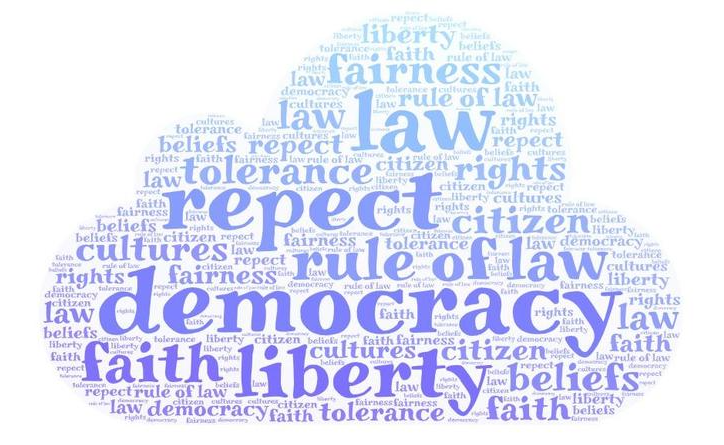
British Values
The Department for Education states that there is a need “to create and enforce a clear and rigorous expectation on all schools to promote the fundamental British values of democracy, the rule of law, individual liberty and mutual respect and tolerance of those with different faiths and beliefs.”
The government set out its definition of British values in the 2011 ‘Prevent Strategy’ and these values were reiterated by the Prime Minister in 2014.
The promotion of ‘British Values’ is central to Catholic education because British values have their origin in the Christian values of our nation.
At St. Joseph’s Catholic Academy, these values are reinforced regularly and in the following ways:
To promote democracy we:
- ensure children are always listened to by adults and are taught to listen carefully and with concern to each other
- democratically elect members of the School Council, with each child voted on by their class
- have a Mini-Vinnies group which plans and organises many charitable activities
- proactively seek the opinions of our pupils formally through pupil voice meetings, school council meetings and pupil questionnaires
- discuss democracy in assemblies and in our “Statements to Live By”
To promote the rule of law we:
- have a Behaviour Policy which is consistently applied and expects all members of our school community to behave responsibly for the good of all
- teach/promote character virtues including, honesty, responsibility, respect and justice
- have three clear school rules; Ready, Respectful, Safe
- have sports leaders and playground friends to promote fair-play
- Pupils are taught the values and reasons behind laws and the consequences if they are broken -visits from authorities such as the Fire Brigade and Police reinforce this message
To encourage individual liberty we:
- encourage pupils to make choices in our safe and supportive environment
- teach children ways in which they can keep themselves safe and encourage them to act with understanding and responsibility e.g. in PSHE lessons
- encourage pupils to choose to play an active role in the school community e.g raising money for local charities and ‘We Love Norton’ after school club
- help children to understand their responsibilities towards others
- through participation in our numerous extra-curricular activities; our children are given the freedom to make choices.
To ensure that everyone treats each other with respect we
- model positive relationships at all levels
- reward positive behaviours and encourage children to recognise the positive behaviours of others through our Statements to Live By, Stars of the Week, Character Virtue and Headteacher awards
- facilitate opportunities for children to work collaboratively in a range of contexts.
- share responsibilities and roles in the day to day life of the school
- commit to charitable events
- visit local and national places of interest, being respectful of those we are with and those we are visiting
- take the opportunity to learn more from and about each other during residential visits
To promote tolerance we:
- educate children in the ways of other faiths and cultures through a broad curriculum
- educate children about prejudice and how this can be challenged through lessons, liturgies and assemblies
- deal swiftly and seriously with any acts of intolerance, challenging unacceptable behaviours and comments
- visit places of worship and invite visitors of other faiths to educate us
- apply consistently our Equality Policy and have equality objectives agreed and monitored by governors
- celebrate cultural and seasonal events
- take part in local community events
- use world events within the curriculum to learn positively about the culture and life in other countries
- Our Catholic Ethos makes a tangible difference to the way we work together and with our wider communities.
Our framework for understanding British values draws on the example of Jesus and his welcome and inclusion of all, which is developed in Catholic Social Teaching. At St Joseph’s we provide an education which focuses on the formation of the whole person and on our vocation and purpose in life. We place a significant emphasis on the celebration of individuality and difference within our communities and our calling to work for the Common Good, in the service of others.